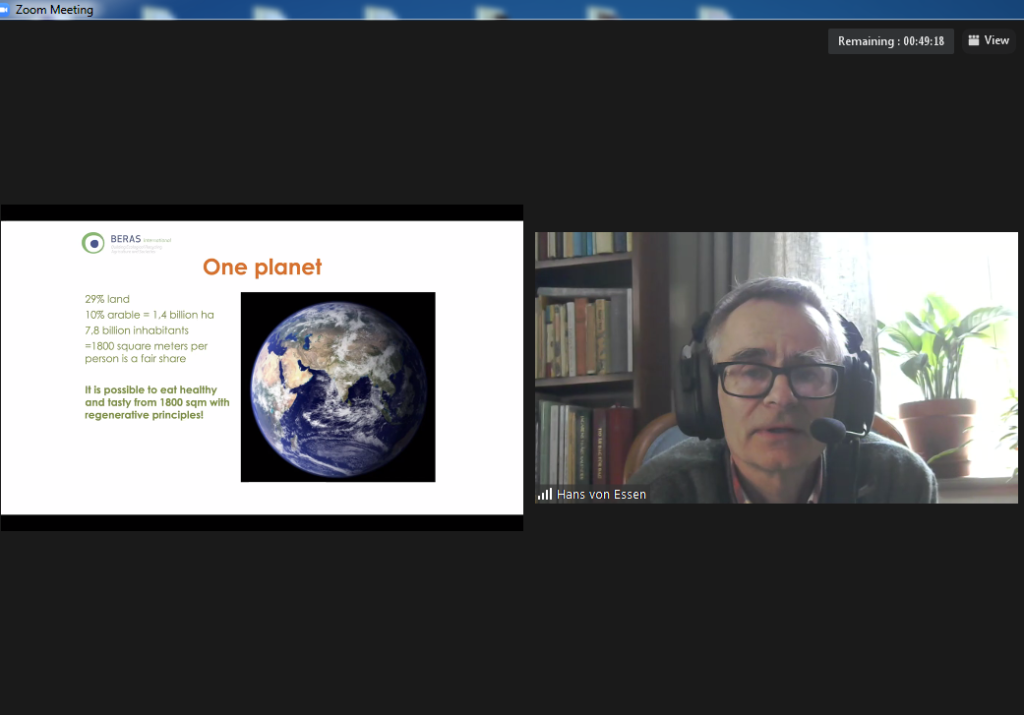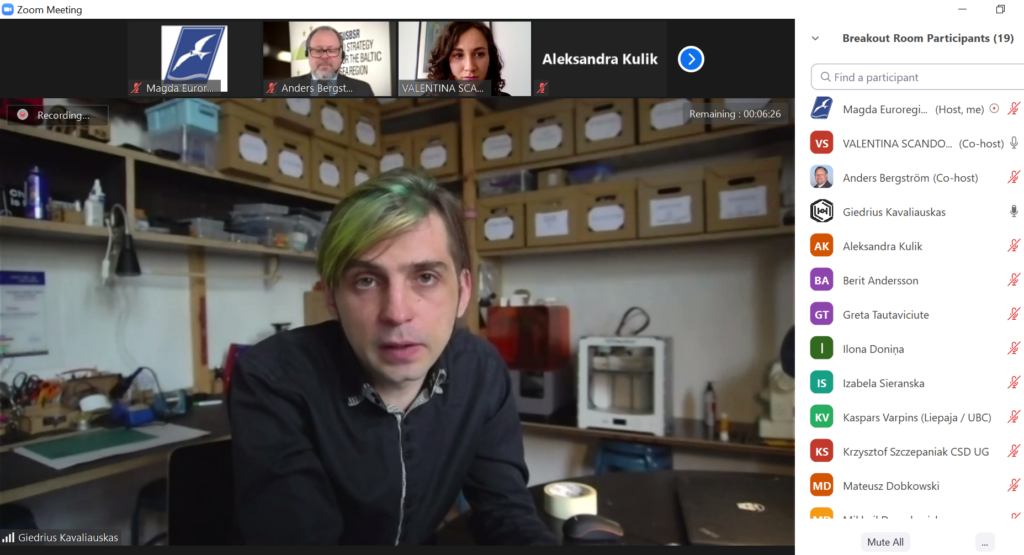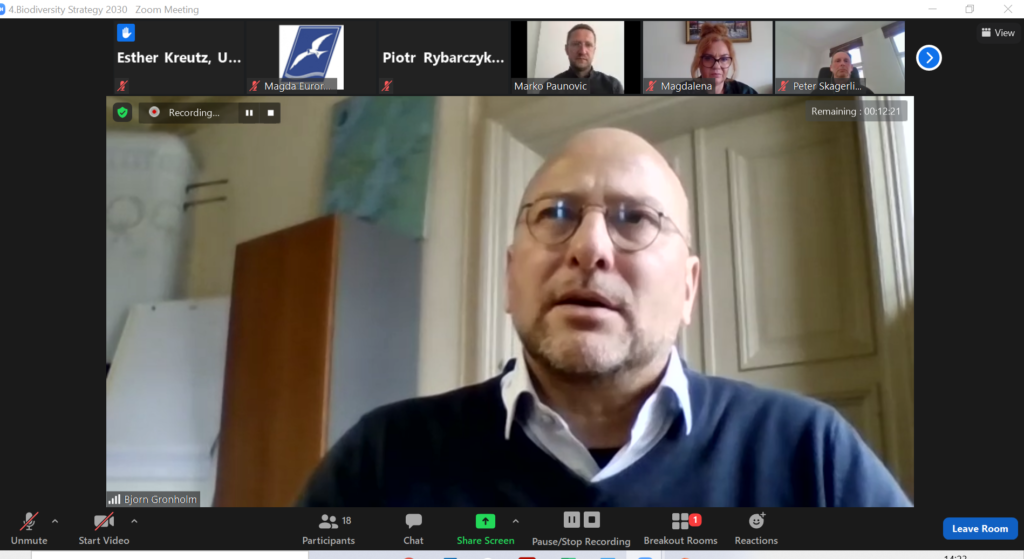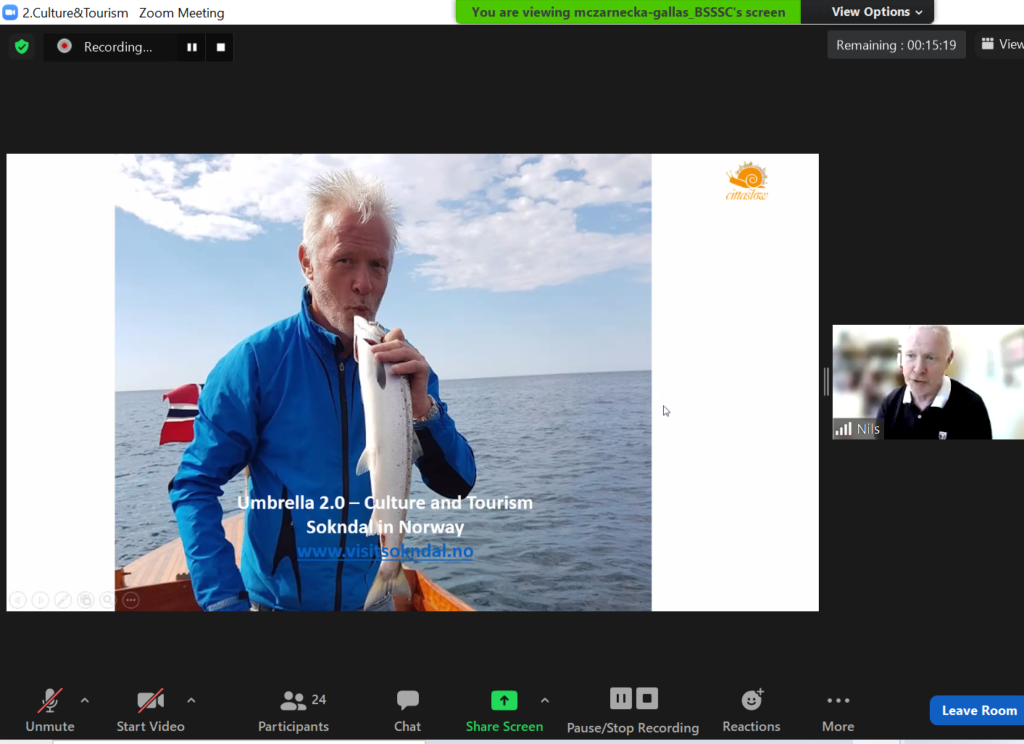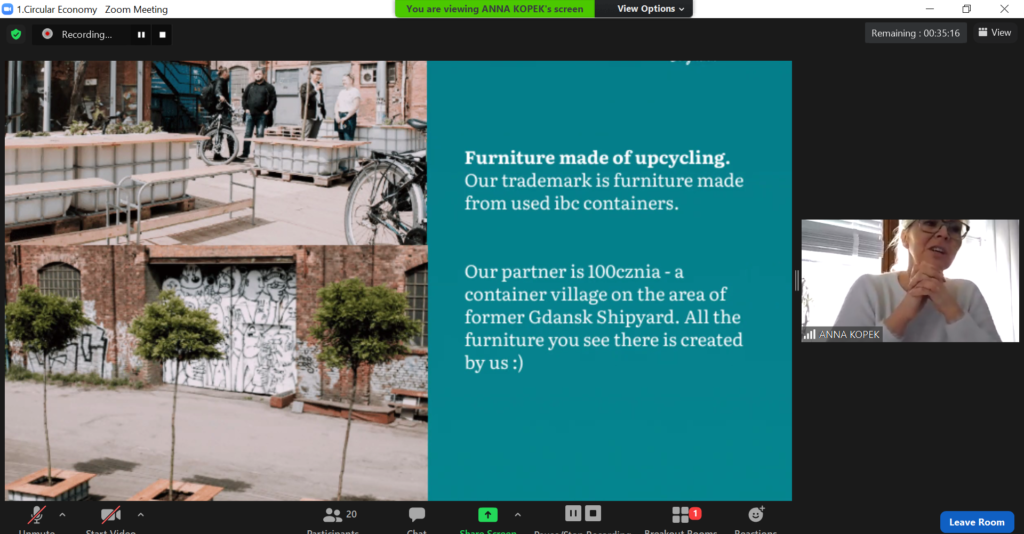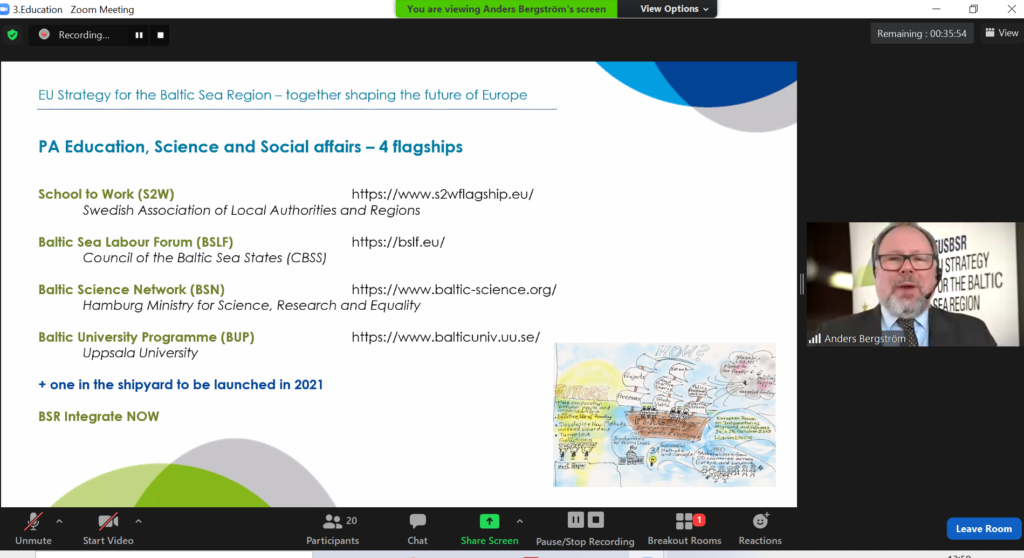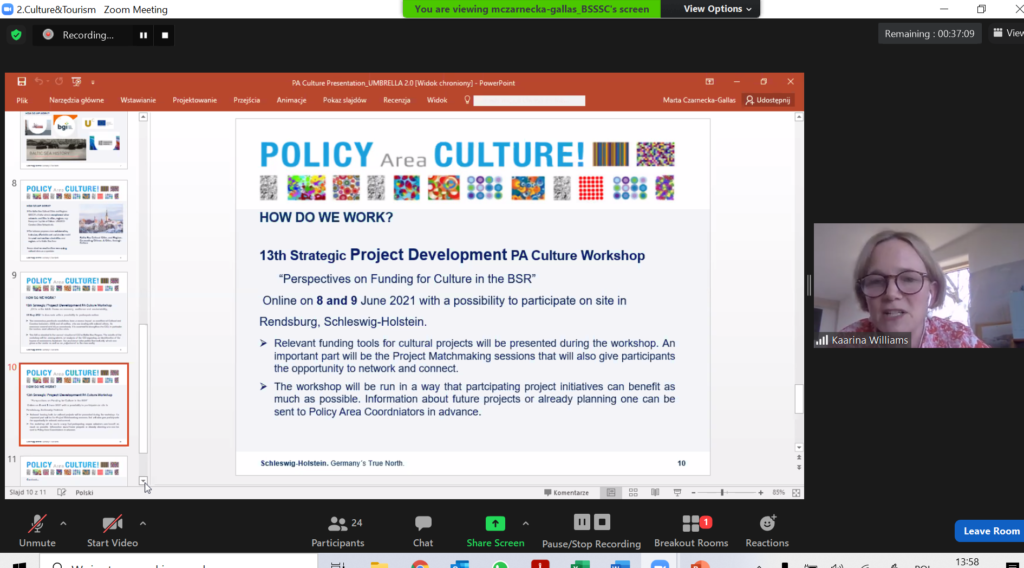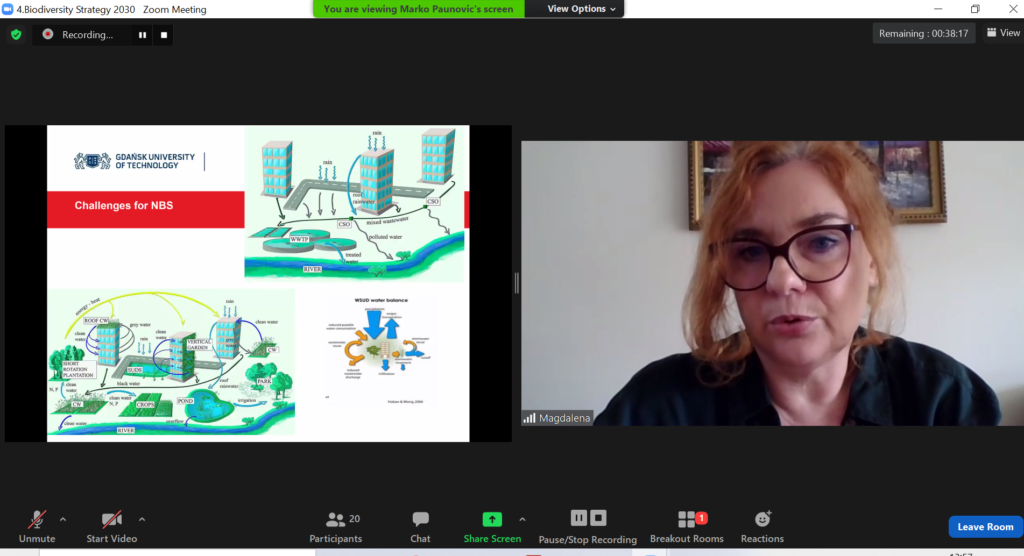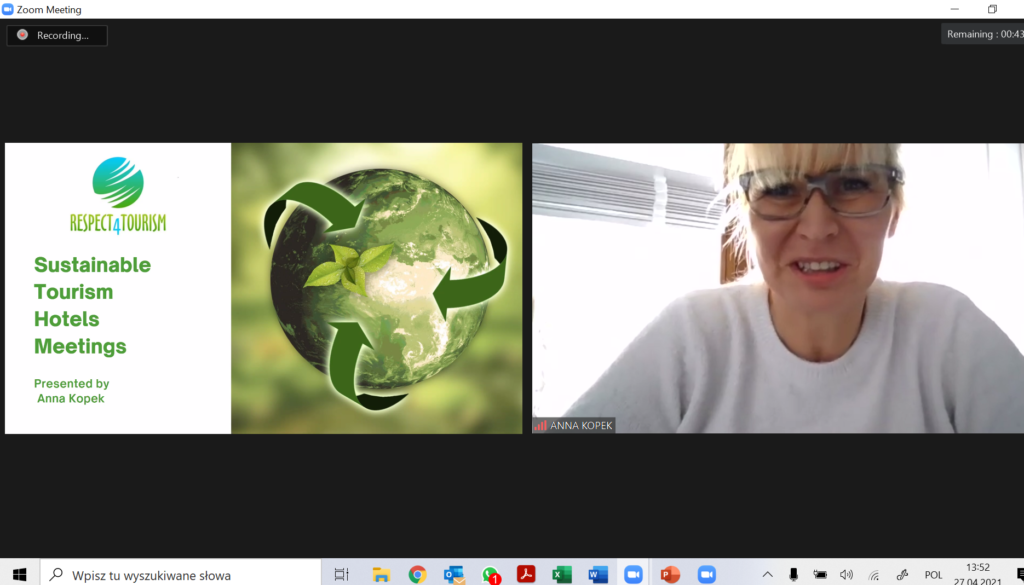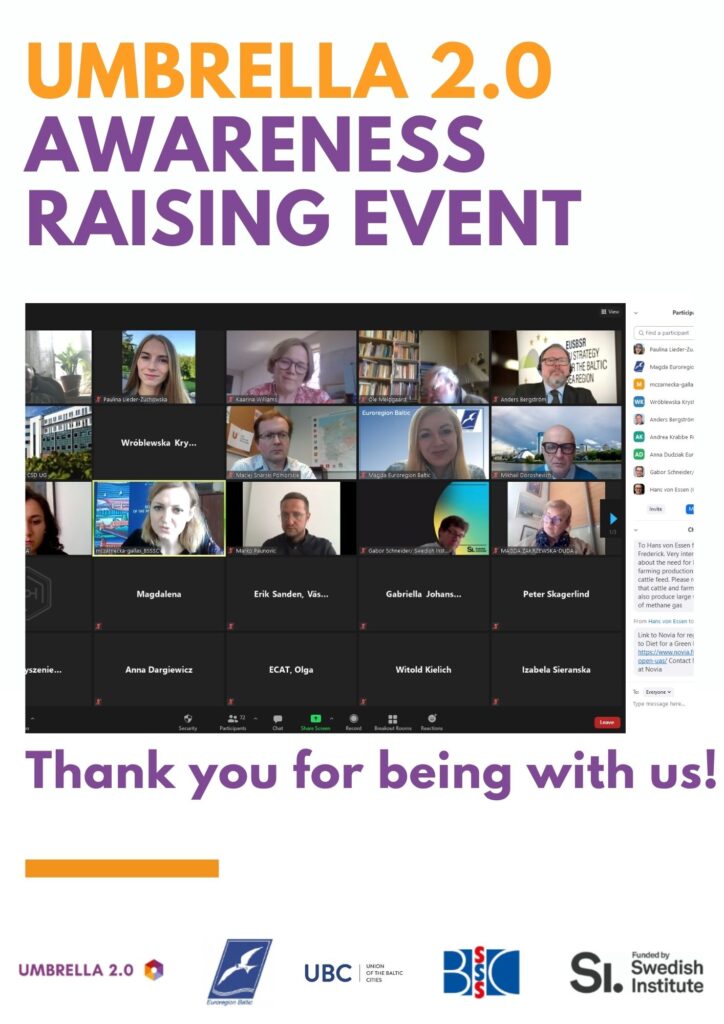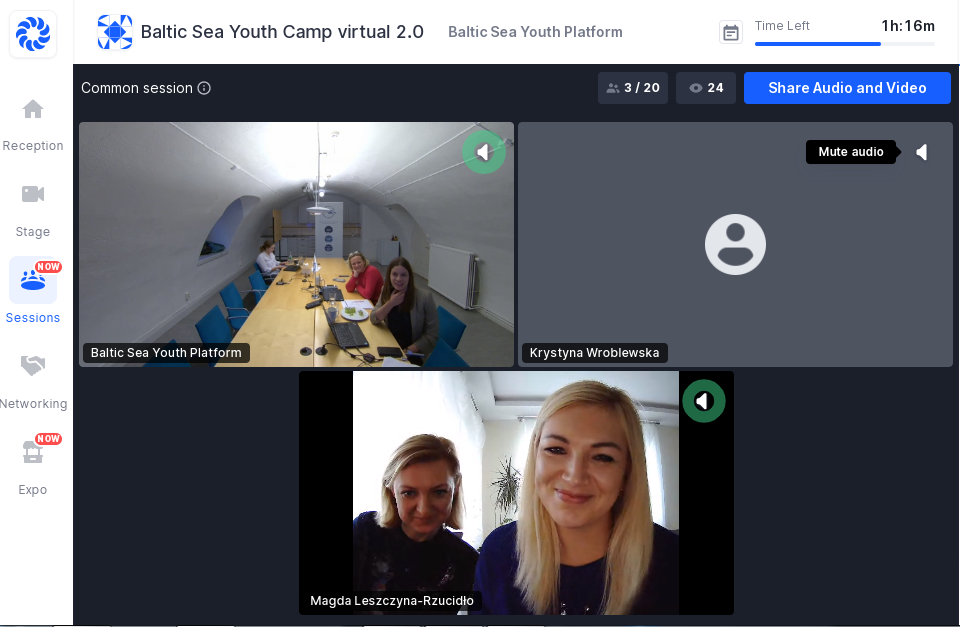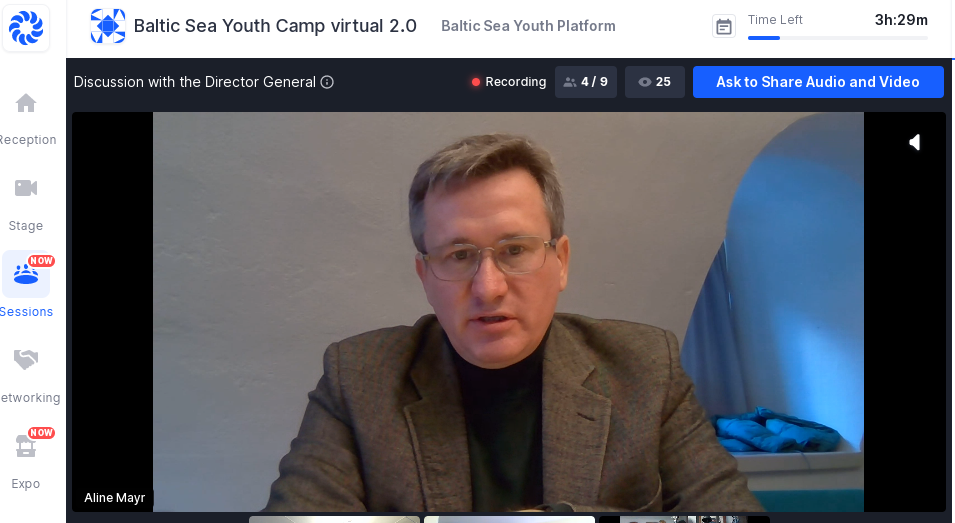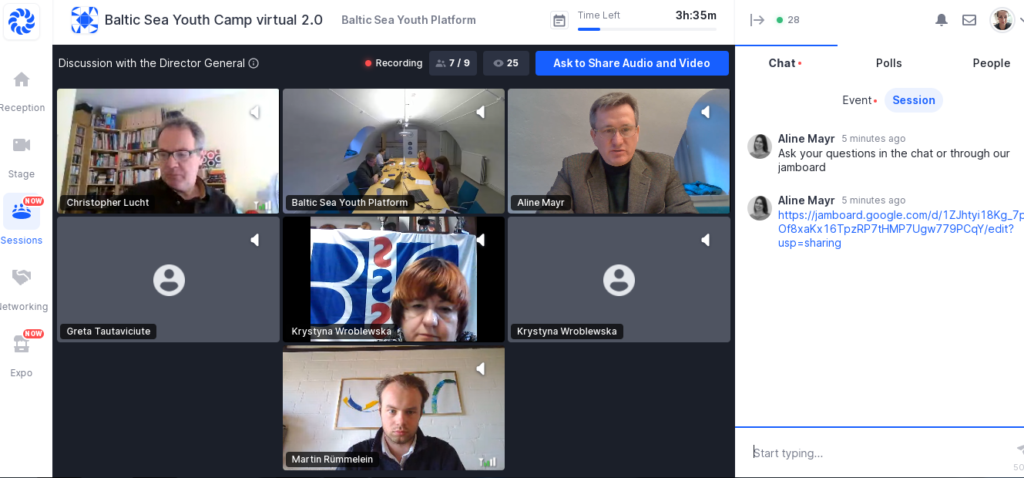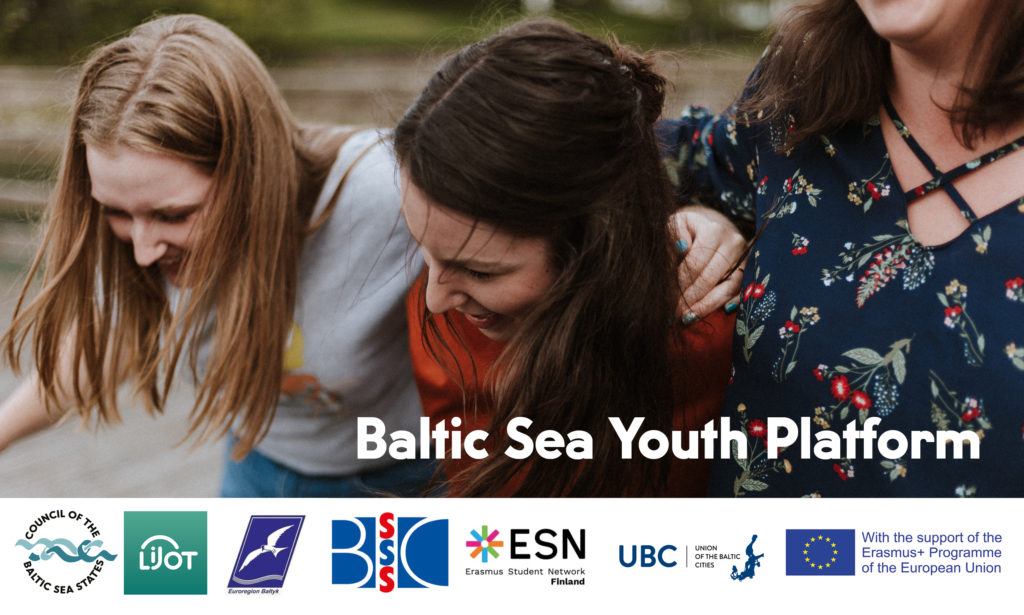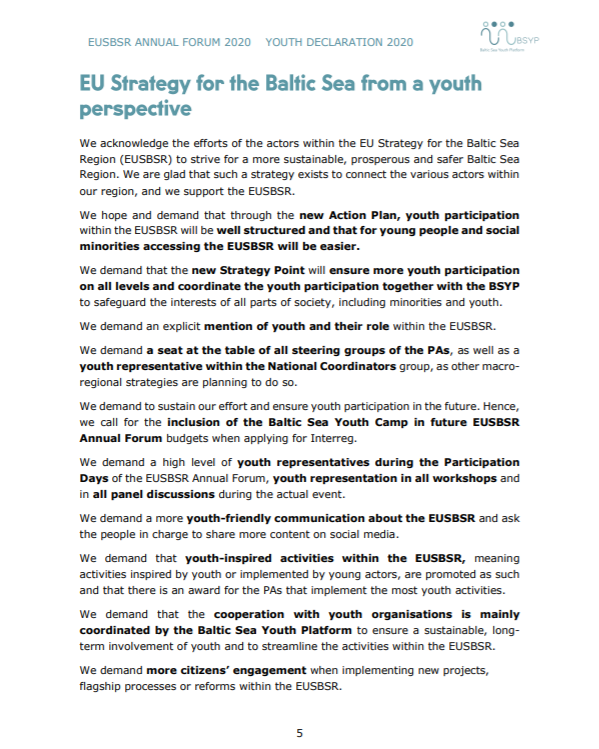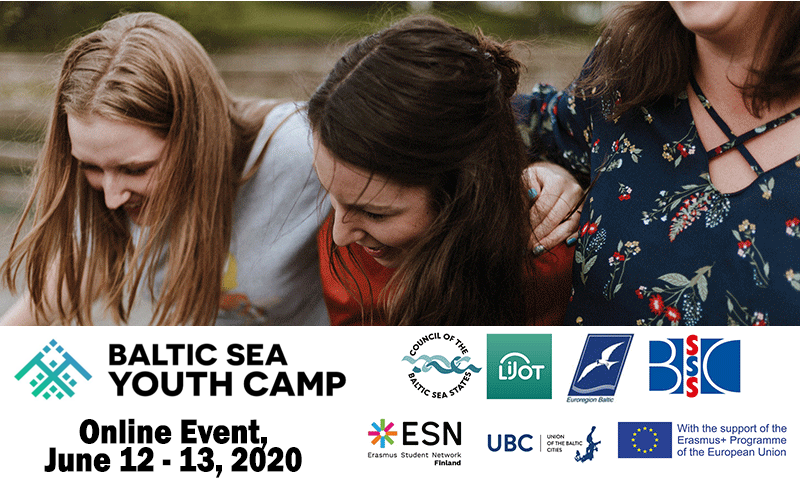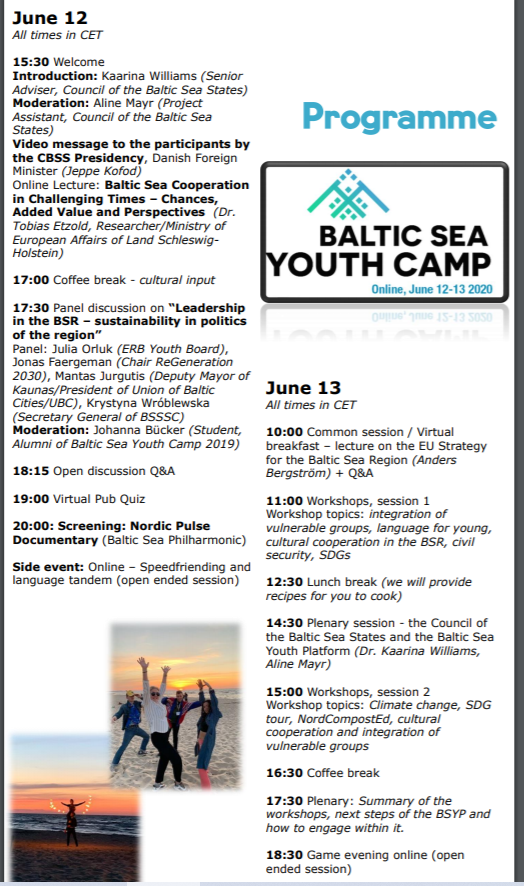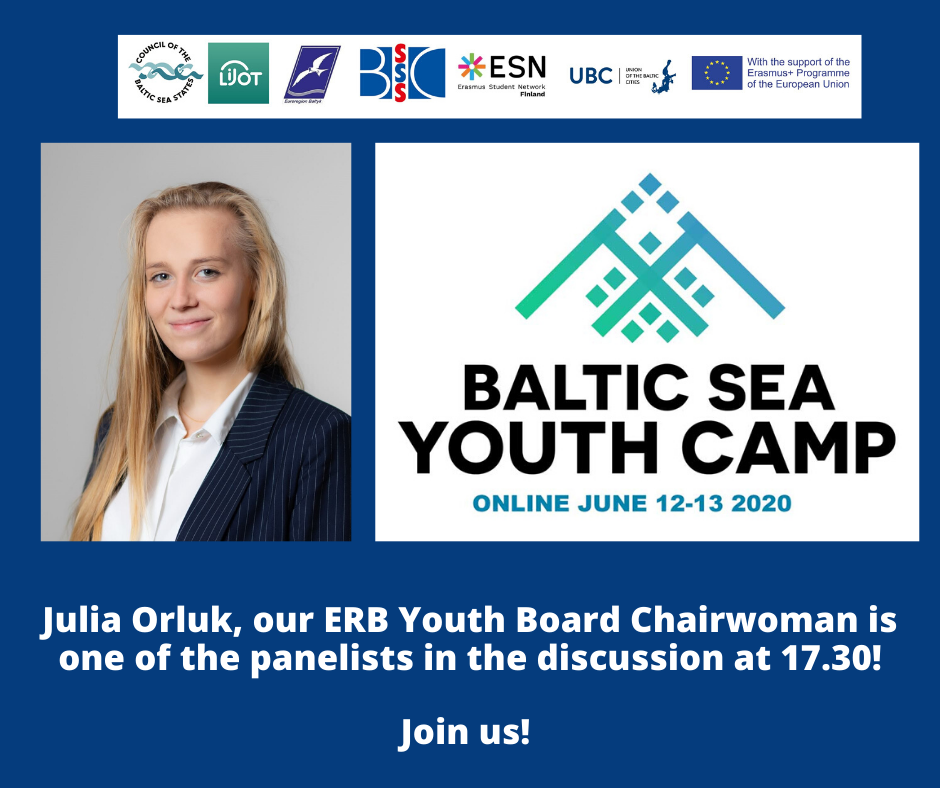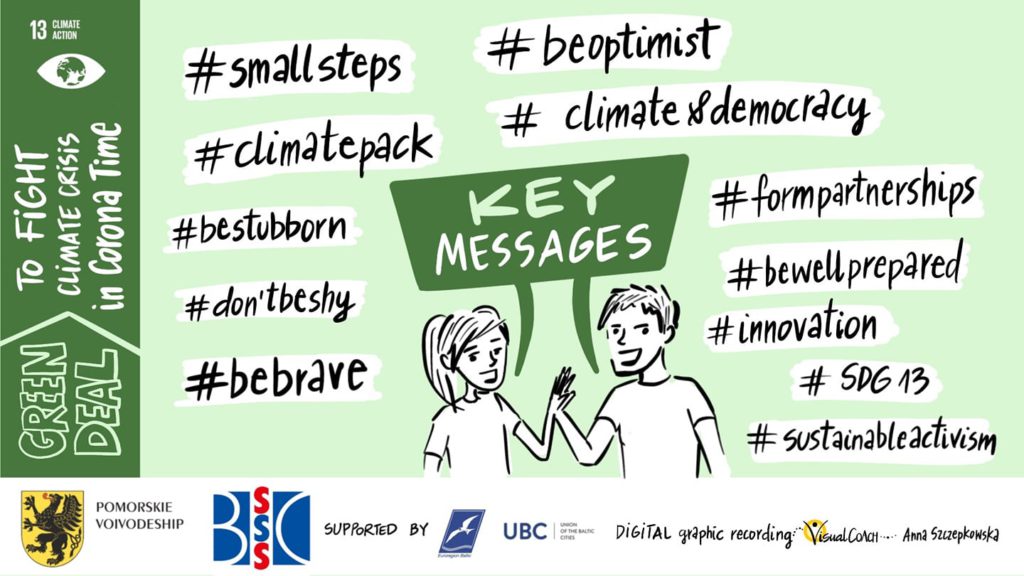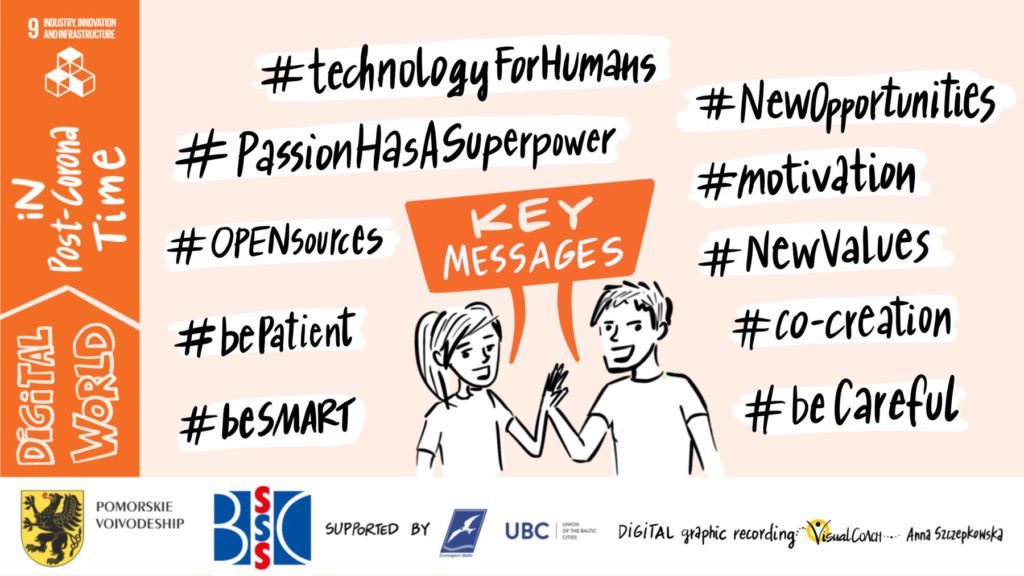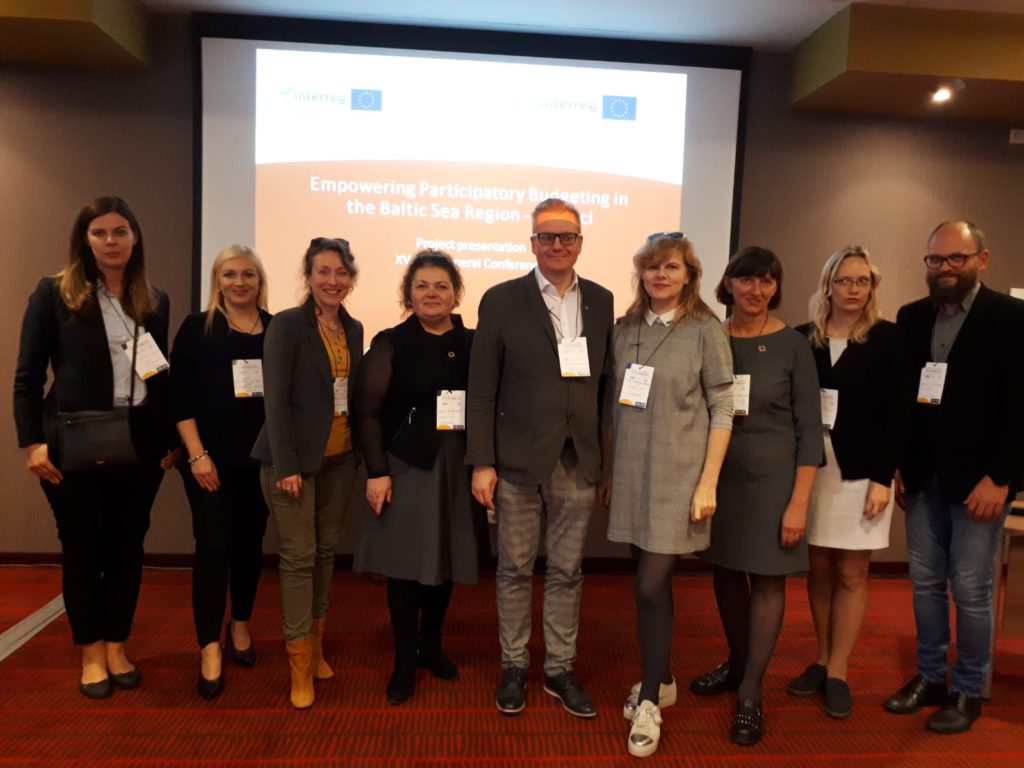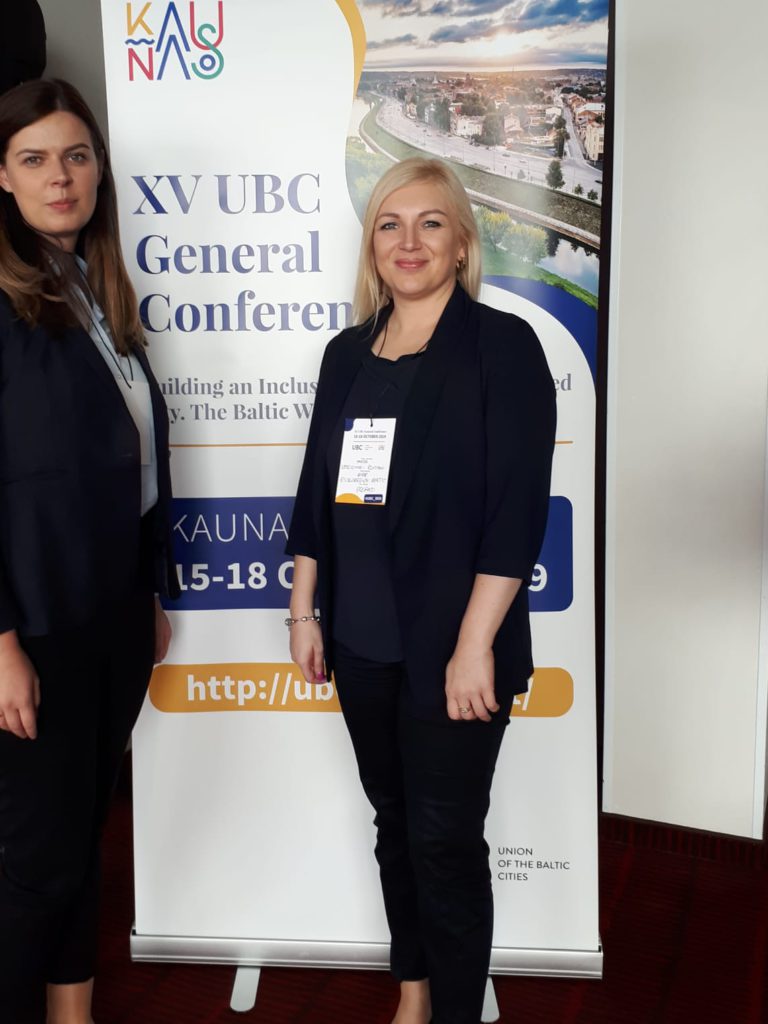Over 125 participants joined us on Tuesday, 27th April to learn more about the cooperation possibilities in the Baltic Sea Region! More than 90 participants stayed also for the thematic workshops part and enjoyed the discussion with the experts from all BSR countries. On behalf of Umbrella 2.0 Partnership: Euroregion Baltic, Union of the Baltic Cities and Baltic Sea States Subregional Cooperation, together with Swedish Institute, which is funding our initiative, we would like to thank everyone for your presence, comments and great inputs!
Our event started with a presentation on the Umbrella 2.0 project given by Magda Leszczyna-Rzucidło – Project Coordinator and Head of the International Permanent Secretariat at Euroregion Baltic, which you can also see here:
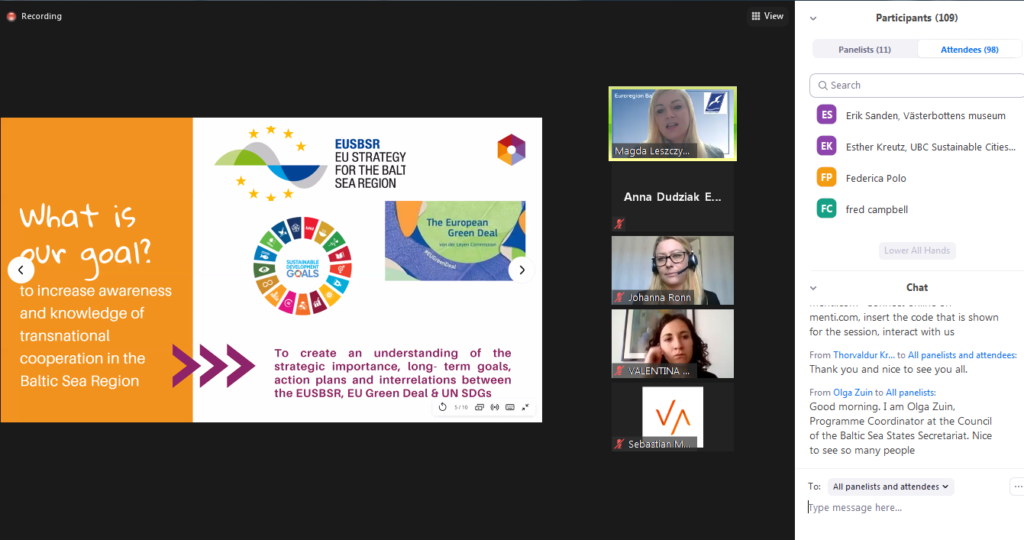
This part was followed by the presentation of 3 project partners, their organisations and the possibilities they offer to the Baltic Sea region smaller actors and institutions eager to start transnational cooperation.
Euroregion Baltic was presented by Johanna Rönn from Blekinge Region, Sweden, currently holding the Presidency at Euroregion Baltic. You can view it here: https://www.canva.com/design/DAEctCGgkm0/J_60g-kRYne_5xnvBW18Iw/view?utm_content=DAEctCGgkm0&utm_campaign=designshare&utm_medium=link&utm_source=sharebutton
Union of the Baltic Cities was presented by Marko Paunovic, Brussels Antenna of UBC
and Baltic Sea States Subregional Cooperation was presented by Marta Czarnecka Gallas, BSSSC Secretary-General
_BSSSC – Who we are, what we do_ 2021_04
Finally, Gabor Schneider presented the Swedish Institute offers for the Baltic Sea Region actors, coming from all over the Baltic Sea, but also available to participants from Russia and Ukraine.
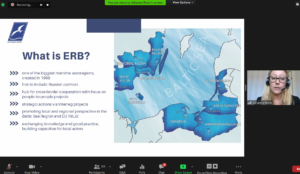
The second hour of the webinar part was dedicated to knowledge sharing – Olga Zuin, Programme Coordinator of the CBSS Baltic 2030 Unit presented her great input on Sustainable Development Goals and their implementation measures in the Baltic Sea Region. She mentioned two important reports prepared by the CBSS:
- Baltic 2030 Bumps on the Road- How the Baltic Sea States are performing on the SDG’s https://cbss.org/wp-content/uploads/2020/04/Baltic-2030_Bumps-on-the-Road_FINAL.pdf
- A handbook Localising sustainable development goals (SDGs) in the Baltic Sea Region, based on the outcomes of the Baltic 2030 Capacity building programme – Localising SDGs 2020 https://cbss.org/wp-content/uploads/2021/01/CBSS_SDGs_ENG_4ONLINE.pdf
Please find Olga’s presentation here: Zuin_CBSS_270421
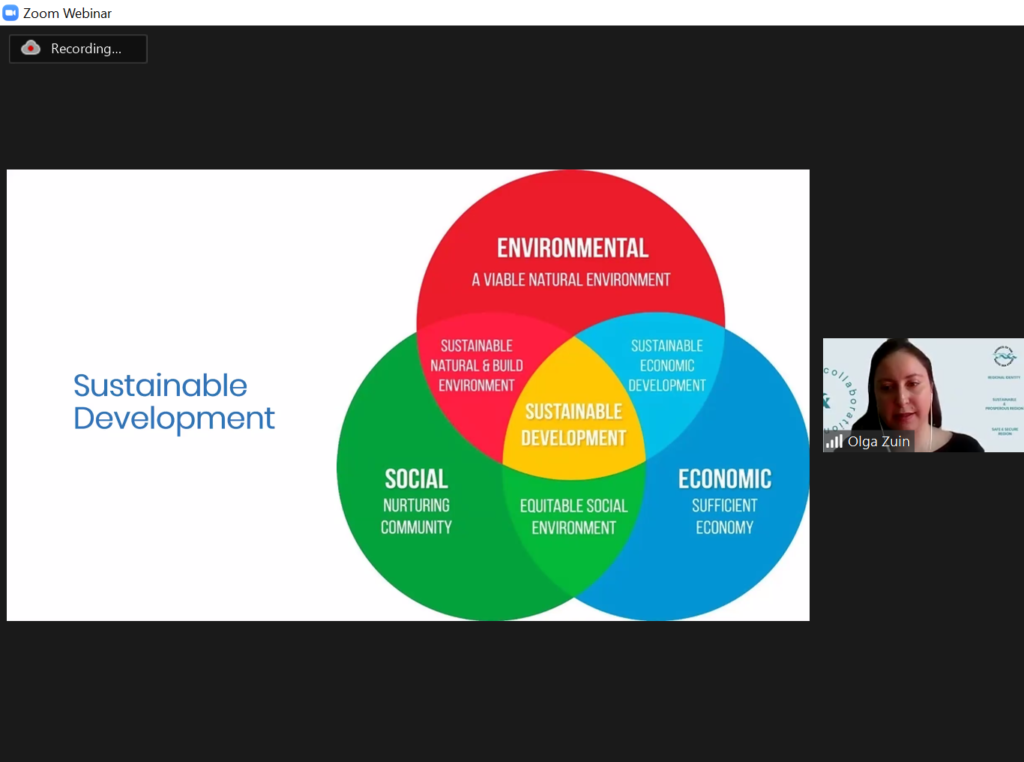
Finally, Sebastian Magier from Vestanda AB, Umbrella 2.0 Expert presented the EU Strategy for the Baltic Sea Region “entry points’ for small and local actors based on 14 interviews with EUSBSR Policy Area Coordinators. The full report will be provided in May and available to all Baltic Sea actors.
Read the full presentation here: Umbrella 2.0_EUSBSR PAC Interviews Presentation
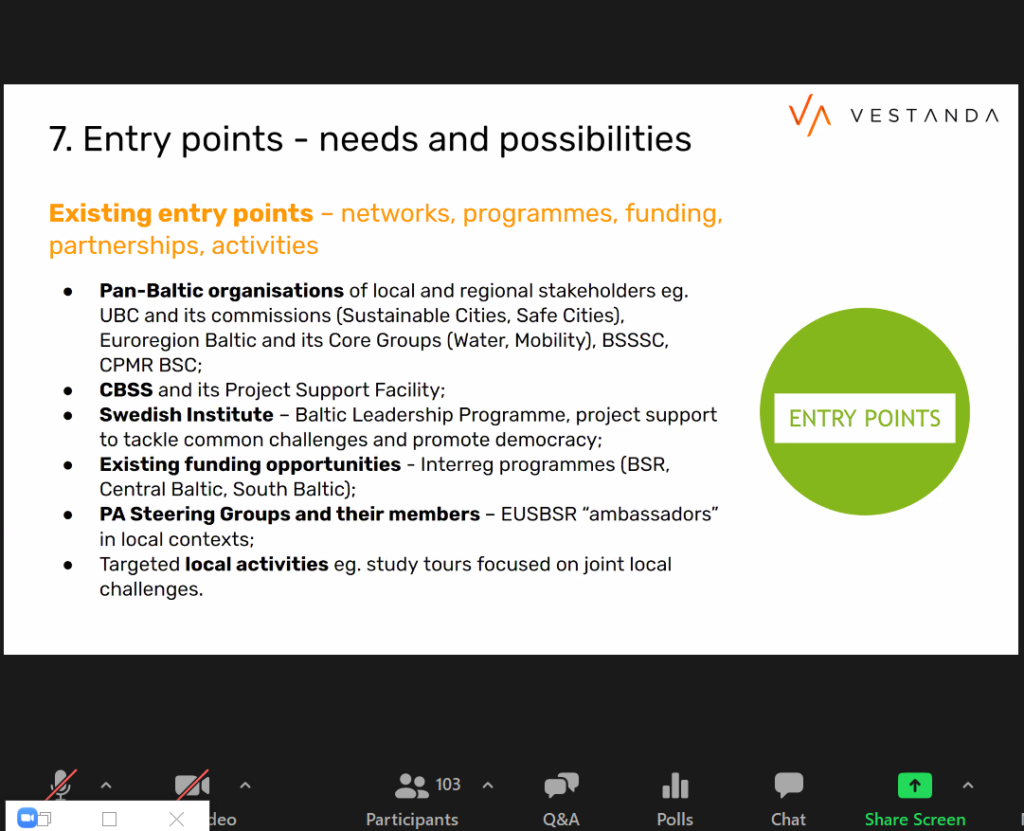
The whole webinar part of the Umbrella 2.0 Awareness Raising Event was recorded and is available online here:
After the break, the event continued with the Q&A Session, where experts related to BSR cooperation answered the questions we’ve received from our participant before the event. Q&A session was related to the Baltic Sea Cooperation related to EUSBSR, SDGs and EU Green Deal.
Questions that were taken live: COMING SOON!
- Is the EUSBSR action plan updated from time to time? How often? And how does the negotiation work? Can local actors contribute to it? How?
Our expert: Anders Bergström, EUSBSR Policy Area Education Coordinator
2. Who’s in charge of monitoring the SDGs achievements in each country of the Baltic Sea States?
Our expert: Olga Zuin, Programme Coordinator of the CBSS Baltic 2030 Unit
3. How do you think the situation in the tourism sector will change after Covid in the Baltic Sea Region, e.g. how the pandemic affected the way of travelling? Will there be any incentives to prefer “green transports?
Our expert: Andrea Krabbe, EUSBSR Policy Area Tourism Coordinator
4. How to find partners for cooperation activities/ international projects?
Our expert: Magda Leszczyna-Rzucidło, Umbrella 2.0 Project Leader, Euroregion Baltic
5. How the EU Strategy for the Baltic Sea Region relates to the EU Green Deal?
Our expert: Marta Czarnecka-Gallas, Umbrella 2.0 Project Partner, BSSSC
6. What are the funding possibilities available at the moment for the Baltic Sea stakeholders when starting international cooperation?
Our expert: Marko Paunovic, Umbrella 2.0 Project Partner, UBC
Video from this session is available here:
Finally, we have 4 thematic workshops with great presentations by experts on:
- circular economy Diet for a green Planet and Respect4Tourism 2021
- culture and tourism PA Culture Presentation_UMBRELLA 2.0
- education
- biodiversity and water issues UBC SCC Gronholm presentation and
